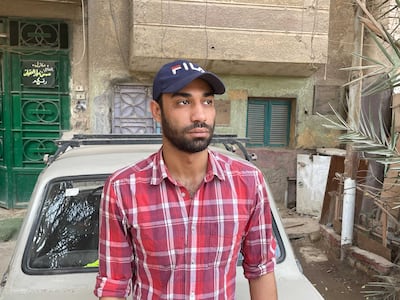Two years into the Covid-19 pandemic and there is little left unaffected by the outbreak.
While many social gatherings have resumed, with the global distribution of vaccinations, one of the most significant and long-lasting effects has been felt in the international job market. Since March 2020, millions have lost their jobs or seen their work environments change drastically to adapt to a new way of life.
In the Middle East and North Africa, one in three young people said they, or someone in their family, had lost their job due to coronavirus this year.
The figure is a significant rise from the previous year, when one in five young Arabs said they or someone they knew had lost their job as a result of the pandemic.
The findings were published on Tuesday in the ASDA’A BCW Arab Youth Survey, which showed that most, about two thirds of young Arabs, had yet to find another job.
Egypt’s economy was among those deeply affected by the pandemic. The majority of citizens of the Arab world’s most populous country, which relies heavily on tourism for its economic stability, underwent profound changes to their work lives.
Nour, 28, was forced out of her job as a marketing strategist at a local company this year. She said the pandemic created a major division in her workplace with some enforcing preventive safety measures, including mask-wearing and social distancing, and others who were not keen to follow such rules.
Being a member of the former camp, Nour said she quickly found herself ostracised by superiors, who did not respond well to being told how to act in the workplace.
As business began to dwindle and the company started to let staff go, she found herself increasingly being pushed out, even having her desk reassigned to a co-worker, and eventually she felt forced to resign.
“What I learnt from my experience at my last job is that during tough times, nepotism, friendships and other loyalty mechanisms can keep someone in their job even if their efficacy is less than their co-workers,” she said.
As she searches for a new job, Nour said the pandemic has made her reassess her priorities and redefine what she looks for in a role.
“Now, before I consider taking a job, I will inquire about the company culture and their healthcare benefits. The pandemic highlighted the importance of these two things for me."
She is also considering pursing a passion project that she can "grow with time", as many of her friends did during the pandemic.
This entrepreneurial spirit was highlighted in the survey, which showed a quarter of young Arabs would prefer to work for themselves or their family, up from 16 per cent in 2019.
Anwar, 28, studied tourism in the hope that he would work within one of the Egypt's largest sectors. After the 2011 uprising that caused the widespread shutdown of the tourism industry, he was forced to fall back on construction work. He had experience in construction, having taken on odd jobs during his teenage years for extra money.
“I spent a lot of time as a day labourer on construction sites when I was a kid. When I couldn’t find work after the revolution, I thought that the most logical option was to fall back on what I already know how to do,” he said.
After the outbreak of Covid-19, the majority of construction projects ceased, leaving thousands of labourers without jobs, including Anwar.

“The streets were lined with day labourers like me who couldn’t find any work. I would see them every morning sitting on the sides of Cairo’s main roads, waiting for any work they could get."
Work has begun to pick up again and many of the old construction sites are operating once more, making Anwar hopeful of better opportunities to come.
In Lebanon, the double effect of severe Covid-19 restrictions that lasted several months and an economic meltdown, now in its second year, has dashed employment opportunities for young people.
The collapse has pushed 78 per cent of the population into poverty, up from 28 per cent in 2019, UN data shows.

Sukaina, 25, said the pandemic and the financial crisis have cost her not one but two jobs in the past year.
She lost her job as a fitness instructor after the gym that employed her closed temporarily due to Covid-19 safety measures. A high number of infections discouraged clients from working out at the gym, pushing the management to trim staff numbers.
She began work as an optometrist at a laser eye centre at the beginning of the country's Covid-19 lockdown in January, before losing that job after the value of the Lebanese pound plummeted.
“I had to continue working for free just because I wanted to gain experience and keep busy during the pandemic,” she said.
She has yet to find another job but is now looking for employment abroad, “just to get out of here".
“I no longer have hope in this country, in trying to fix a society that doesn’t want to be fixed," she said.















